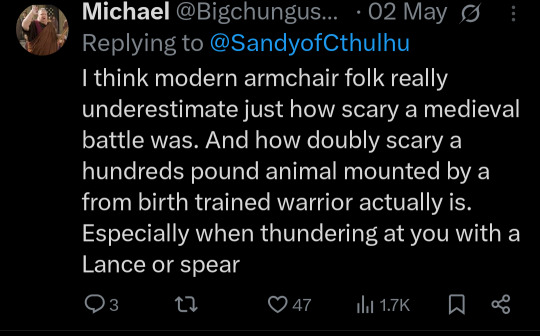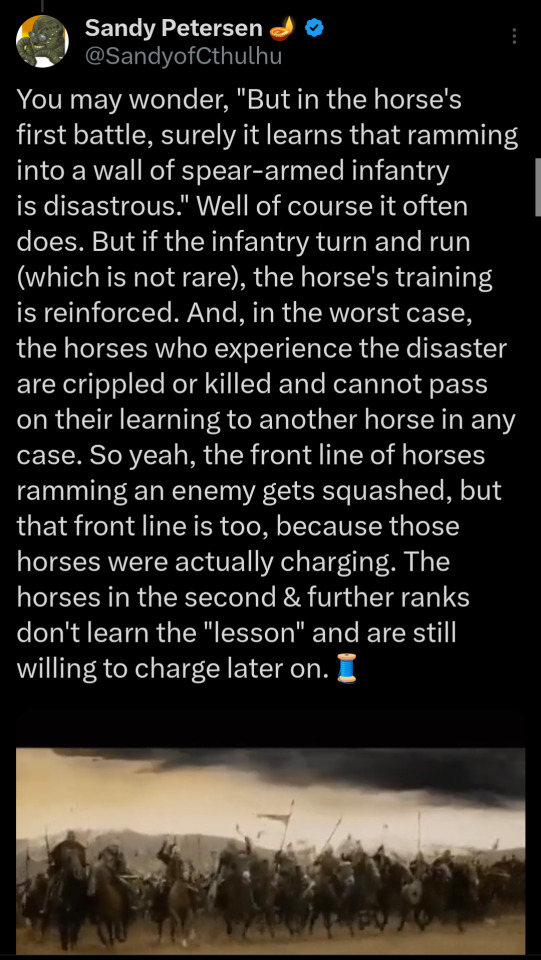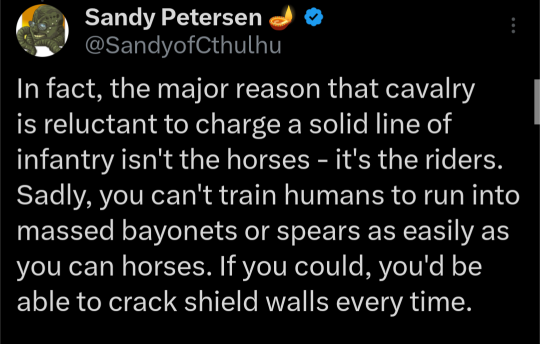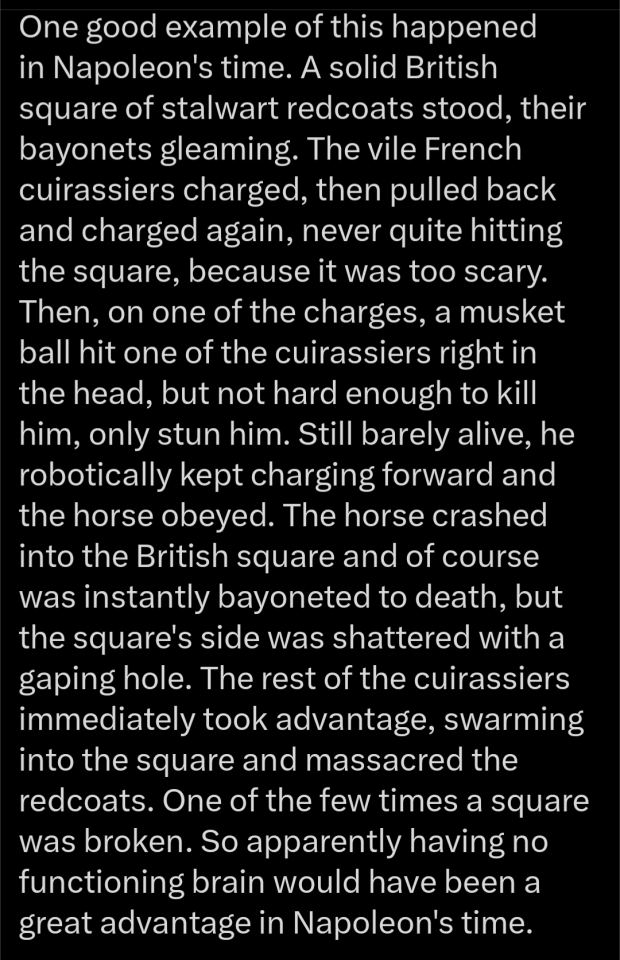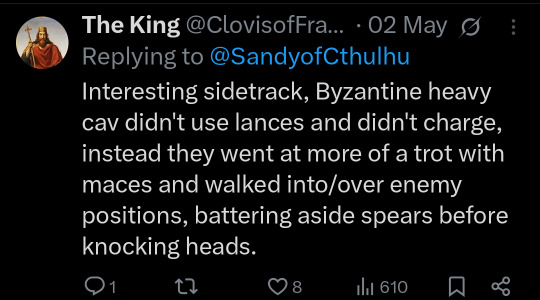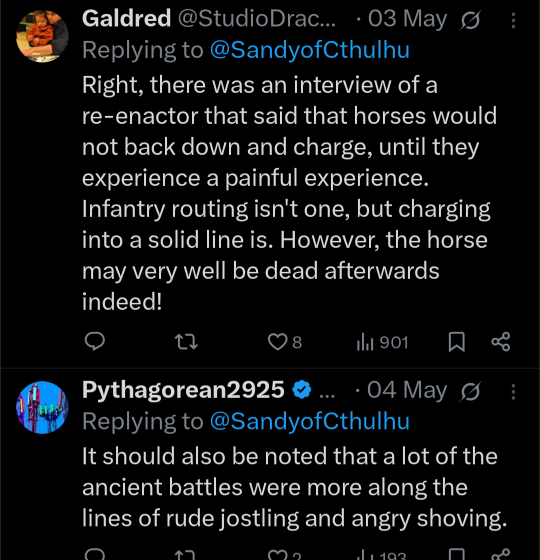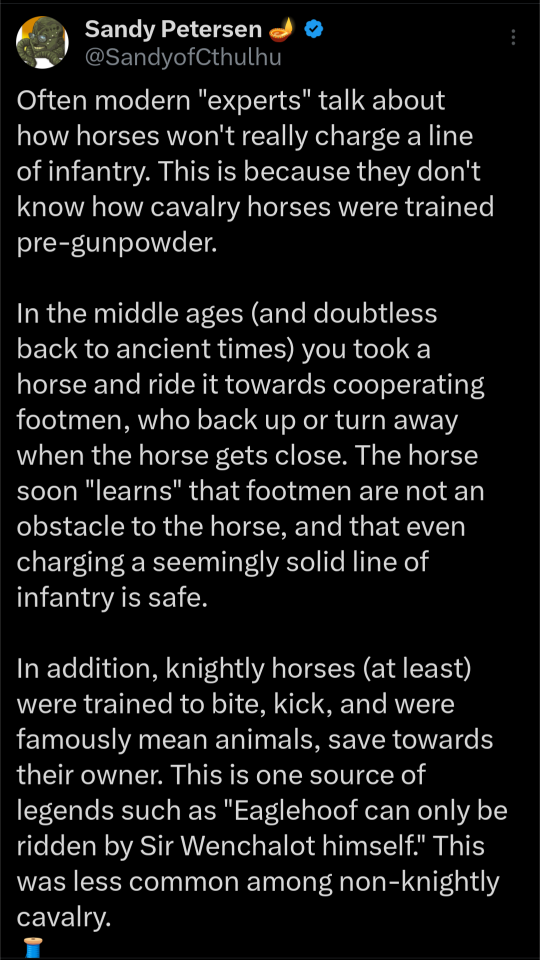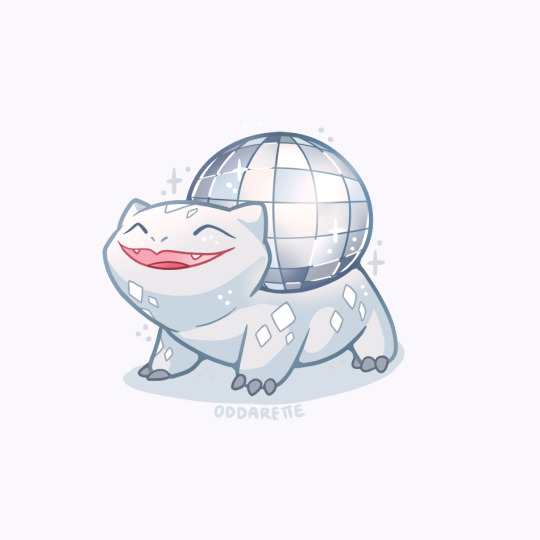She/Her - I'm 18+ - We'll see if anything else ever shows here.
Last active 60 minutes ago
Don't wanna be here? Send us removal request.
Text
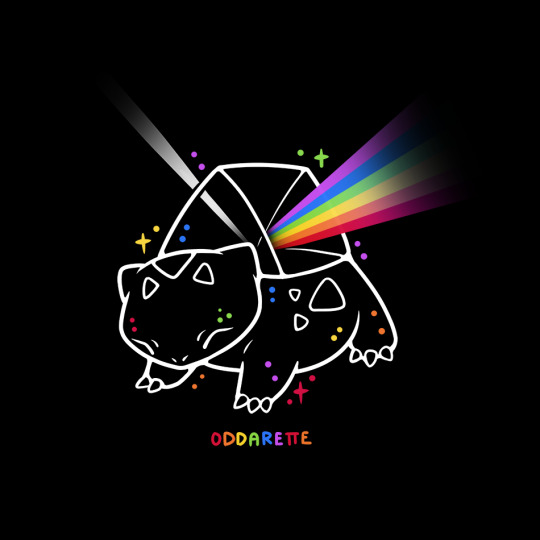
I was sad that I had no ideas for pride month but then this little guy popped into my head. Say hi to triangular prism bulbasaur, the surprise last guest in the light bulbasaur series 🌈
707 notes
·
View notes
Text
Those "modern fairy tales where the princess saves herself" types of books not only misrepresent the gender roles in fairy tales (there are tons of stories where girls get to save the day), but they fundamentally misunderstand the entire genre.
Fairy tales aren't about saving yourself.
These aren't epic myths or heroic legends about the great warriors who slay every monster in their path because they're so awesome. Fairy tales are almost always about ordinary, even incompetent, people who get thrown into strange situations where they only succeed because of the help of others.
It's not a gendered thing. The boy who goes off to seek his fortune is usually the dim-witted third son whose older brothers are the strong, smart ones. The third son succeeds because he is kind to the magical helpers who then complete the tasks for him--and the exact same thing happens when a girl is the main character.
The characters in a fairy tale rarely succeed because they embrace their own strength and take their own path. Much more often, they are told step-by-step what to do, and they succeed because they obey--respecting the wisdom of others.
The core virtue of a fairy tale is not pride, but humility. It's not a story about the strong, but those who are weak, small, helpless. The people who can't do it all on their own, but can recognize the worth and wisdom of others.
Turning this story into a "girl power" (or even a "boy power") story warps it into something that is fundamentally the opposite of a fairy tale, and it has nothing to do with the gender of the main character.
7K notes
·
View notes
Text
ForgottenWriter's Guide to Writing: Character Arcs
Okay, so now you've done some writing, you have a basic grasp of tenses and persons. You've done a few one-shots, and maybe, you're feeling like you could go a bit further. But there are some key differences between a one-shot and a multi-chapter story that you're going to have to content with!
A one-shot is self contained; it's in the title. One and done. There aren't too many moving pieces, which means that you don't have to lay out a lot. You can just sort of go with your gut and feel your way through.
But a multi-chapter story is different; it will be a sustained effort over days, weeks, or months. You will come back to it again and again, and you won't always have that feeling and sense of purpose. Not only this, but as your plot grows more complex, and your characters become more myriad, it becomes harder and harder to actually keep on top of things and write a satisfying story with a proper arc!
Luckily, there are things you can do to help, and I'll get into them in just a moment. But before I do, i want to make something clear: so far, what I've described is pretty objective. Tenses, Persons, whatever. These things have a level of universality. They apply more or less no matter what you do or who you are.
From this point on, it gets murky. I've given you the bare basics, and now we're moving to the moderately more advanced stuff which is a bit more finicky. What I tell you is now not hard and fast rules, but should be taken as guidelines. I will lay out what works for me, what works for most authors, and sometimes, I'll make note of alternative versions, or tell you that it may not be perfect. But even where I don't say that, it will be down to you to experiment with what I show you and fit it to your style.
Don't take my word as law from this point on - as if you ever should have in the first place, lol. And no matter what I say next, there will always be people who can go ''you know what? This just doesn't work for me.''
So experiment, practice, and find your particular version! In the meantime, I'll do my best to lay what I have out for you to pick through like a raccoon going through a suspiciously abandoned pizza box so you can find the stuff that calls to you.
Let's start with some theory: I mentioned character arcs before, but what actually are they?
Character Arcs
In essence, people like stories. It's human nature to enjoy them, but we also can get bored. If things feel the same the whole way through, why should anyone ready your work? If it's just going to feel like the same scenes, the same fights, the same talks again and again and again with only minor changes, what exactly are you offering?
This is where character arcs come in. Now, I am going to be talking about them in the context of your main character, but be aware that an arc can be given to almost any character and having an arc is usually a key component in your readers coming to like and enjoy a character. We see them grow and change, and so we become invested in who they're becoming. It makes us want to see more, and it makes us want to see them succeed!
So, to break it down, a character arc is how your guy changes from the start of the story to the end. It's how their experience shapes them, what they learn, what they become. If you take a story of a trainee squire and end with him as a full knight? That's a character arc. Do the traditional thing of a prince in exile and then have him give up the crown or take back the throne? Also a character arc.
Anything which causes your character to be different by the end of the story compared to the start is an arc, and humans love arcs.
A character arc appeals to us for several reasons. Firstly, it creates a sense of tension and drama. We can see a character is changing, but are they going to be better or worse? Will we like them more as the new one or will we mourn who they used to be? Are their experiences - their scars - actively making them a worse person or can they rise above their demons and become better?
And so forth and so on. it creates a sense of tension and drama that you can draw on when your main plot is stalling out or you want to switch focus.
So, how do you actually do a character arc? Well, in a sense, it's both easy and complex. All you have to do is have your main character change over time. Let's say that they react to their situations, and don't forget it by next chapter. They learn and grow, and falter and make mistakes. They draw on past experience to confront future threats, and over time, as their library of past experiences grows, they begin to act very differently than who they used to be.
A good character arc study is Aang from Avatar: The Last Airbender. When we're first introduced to his character, he's flighty and childish, but ultimately, he's not ready to accept his place as the Avatar. He's running from it. But over the course of the series, we watch as he runs into situations and people who help him to realise that an avatar is needed and that he's the only one who can fill the role. At the end of the series, he willingly embraces the role, and acts with a deep maturity and inner strength that his earlier incarnation didn't have.
This is a good character arc, and watchers bought it and loved it. But character arcs can also fail, or ring hollow. When this happens, it can actively hurt the work because it strains your reader's suspension of disbelief.
Above all else, your character arcs need to feel realistic. It doesn't matter if they involve monsters, or magic, or sci-fi, or whatever. But they need to be emotionally grounded. Your character has to be acting in a way a human would actually act.
A human knight fighting a dragon who is grievously injured and pushed to the verge of death until they're saved by a miracle isn't going to come out of that fight thinking ''OH my god, I am the best thing ever. Nothing can touch me. I'm immortal!''
He's going to say: ''Oh my god, I nearly died, fuck, fuck, fuck, I was not ready oh my god, they want me to fight another one?!''
Unless you're setting up the knight to intentionally be deluding himself, the first outcome is unlikely, and having your character embrace it and the story treat it as if it's correct, it probably going to hurt your work.
That's a bit of a wild example, but hopefully you see my point. A character arc should always feel like it's something the character could do, given what your readers know of them.
Another important rule is not to rush ahead - this is connected with the first thing, but let's say you have someone who is horribly racist. His life is saved by one of the people he hates. He's not going to instantly turn his whole belief structure around. He's not going to realise he was a monster right away. Rushing right to that outcome after a single incident is bad writing, and it will feel highly unsatisfying.
Instead, he's going to be challenged to the core. He's going to struggle, and try to justify his feelings vs the realisation that one of those people saved his life. He's going to go back and forth, and wage war on himself, and it's going to be painful, and he's going to have to go through a long, extended process before you can portray him as coming out the other side.
This is why it's said that you have to earn your character's end states. The more divergent and different your end goal is compared to your character starts, the more detailed an arc you're going to have to paint to make your readers buy it.
You can't just have your racist guy appear and be an ass in the first chapter, then hop in again twenty chapters later as a reformed man and just go ''well, I spent the whole time working on myself!'' readers need to see it. They need to see the between process, the struggle, and the personal pain the man goes through as he upturns his life.
Character arcs are foundational to all modern writing in one form or another, and if you want to see that for yourself, pick up any book and you'll find them.
Now, how to actually write a character arc? It's practice. Basically, just practice. At first, you'll be clumsy, and it won't come very naturally at all. Try to create a sense of who your character is at the start and who you want them to be at the end. Them, draw a line between the two and figure out what events need to happen to turn one into the other. Make a little chart if it helps.
Your initial attempts will probably not yield great results, but that's okay. Writing is art, and no artist expects to be amazing at a new skill right away. Do it. Do it again. keep at it and gradually, you'll see your skills starting to improve.
A good arc can make or break a character, and your main character should have a very solid arc at all times.
1 note
·
View note
Note
Indeed. Also from the UK, and I also see first hand the stuff she does, and the stuff she still wants to do. Her newest legal fund explicitly to drive trans people out of public life, harassing trans kids, the anti-trans supreme court decision which was explicitly because she just poured infinite money into it until she got the result she wanted?
It baffles me that people can look at someone like this and go ''Yes, this is who we want to support! A woman who bullies kids off twitter! Who refuses to recognise aspects of the Holocaust, who is so self-righteous in her own view of the world that she struggles to accept that bisexual people exist harmlessly.'' Not even just trans people - her beef with us is well known. But bisexual people as well. And gay people. And really, anyone who isn't white, middle-class and exactly like her.
Its not your place to police people. I shall not ever move from Harry Potter and there's many more also not moving on. Get over it.
The irony of telling me to get over it when you— clearly— are not getting over things lmao
30 notes
·
View notes
Note
The sheer arrogance of this one. Honestly, though. I get it. When you're doing a bad thing and know you're doing a bad thing, you can justify it by lashing out and covering your guilt with anger.
''Yes, I'm hurting people by supporting an evil person and I know I'm hurting people! How dare you make me introspect, face that and feel bad for it? I'm not the problem, you are!''
TBH, my usual thing about Harry Potter fans is just sort of exhausted acceptance. Whatever. You do you if you absolutely must. But know what you're doing and what you're funding, and you don't get to scream at the people whose rights your money is directly attacking that they're making you feel bad for asking for your help.
Its not your place to police people. I shall not ever move from Harry Potter and there's many more also not moving on. Get over it.
The irony of telling me to get over it when you— clearly— are not getting over things lmao
30 notes
·
View notes
Photo


In 2005, a group of artists in Italy built a giant 200-foot-long plushie rabbit in the countryside, and just left it there. It’s been there ever since.
(Source)
372K notes
·
View notes
Text


I designed this Tiffany lamp themed bulbasaur with a lot of hesitation. I’m not sure how the design conveys but I thought she would be cool what with the pull string whips and all.
8K notes
·
View notes
Text

The last part of my light themed bulbasaur series. The color Ballbasaur. Based on those color ball party lights you might see at raves or discos :)
3K notes
·
View notes
Text
Trying to figure out what to cover in the writing guide next. I think we've done most of the bare basics, so it's a toss-up between how to plan a story with the usual three act structure, or how to start to spice up your dialogue
3 notes
·
View notes
Text
🍖 How to Build a Culture Without Just Inventing Spices and Necklaces
(a worldbuilding roast. with love.)
So. You’re building a fantasy world, and you’ve just invented: → Three types of ceremonial jewelry → A spice that tastes like cinnamon if it were bitter and cursed → A holiday where everyone wears gold and screams at dawn
Cute. But that’s not culture. That’s aesthetics.
And if your worldbuilding is all outfits, dances, and spice blends with vaguely mystical names, your story’s probably going to feel like a cosplay convention held inside a Pinterest board.
Here’s how to fix that—aka: how to build a real, functioning culture that shapes your story, not just its vibes.
─────── ✦ ───────
🔗 Culture Is Built on Power, Not Just Style
Ask yourself: → Who’s in charge, and why? → Who has land? Who doesn’t? → What’s considered taboo, sacred, or punishable by death?
Culture is shaped by who gets to make the rules and who gets crushed by them. That’s where things like religion, family structure, class divisions, gender roles, and social expectations actually come from.
Start there. Not at the embroidery.
─────── ✦ ───────
2.🪓 Culture Comes From Conflict
Did this society evolve peacefully? Was it colonized? Did it colonize? Was it rebuilt after a war? Is it still in one?
→ What was destroyed and mythologized? → What do the survivors still whisper about? → What do children get taught in school that’s… suspiciously sanitized?
No culture is neutral. Every tradition has a history, and that history should taste like blood, loss, or propaganda.
─────── ✦ ───────
3.🧠 Belief Systems > Customs Lists
Sure, rituals and holidays are cool. But what do people believe about: → Death? → Love? → Time? → The natural world? → Justice?
Example: A society that believes time is cyclical vs. one that sees time as linear will approach everything—from prison sentences to grief—completely differently.
You don’t need to invent 80 gods. You need to know what those gods mean to the people who pray to them.
─────── ✦ ───────
4.🫀 Culture Controls Behavior (Quietly)
Culture shows up in: → What people apologize for → What insults cut deepest → What people are embarrassed about → What’s praised publicly vs. what’s hidden privately
For instance: → A culture obsessed with stoicism won’t say “I love you.” They’ll say “Have you eaten?” → A culture built on legacy might prioritize ancestor veneration, archival writing, name inheritance.
This stuff? Way more immersive than giving everyone matching earrings.
─────── ✦ ───────
5. 🏠 Culture = Daily Life, Not Just Festivals
Sure, your MC might attend a funeral where people paint their faces blue. But what about: → Breakfast routines? → How people greet each other on the street? → Who cooks, and who eats first? → What’s considered “clean” or “proper”? → How is parenting handled? Divorce?
Culture is what happens between plot points. It should shape your character’s assumptions, language, fears, and habits—whether or not a festival is going on.
─────── ✦ ───────
6. 💬 Let Your Characters Disagree With Their Own Culture
A culture isn’t a monolith.
Even in deeply traditional societies, people: → Rebel → Question → Break rules → Misinterpret laws → Mock sacred things → Act hypocritically → Weaponize or resist what’s expected
Let your characters wrestle with the culture around them. That’s where realism (and tension) lives.
─────── ✦ ───────
7.🧼 Beware the “Pretty = Good” Trap
Worldbuilding gets boring fast when: → The protagonist’s homeland is beautiful and pure → The enemy’s culture is dark and “barbaric” → Every detail just reinforces who the reader should like
You can—and should—challenge the aesthetic hierarchy. → Let ugly things be beloved. → Let beautiful things be corrupt. → Let your MC romanticize their culture and then get disillusioned by it later.
─────── ✦ ───────
📍 TL;DR (but like, spicy): → Culture is not food and jewelry. → Culture is power, fear, memory, contradiction. → Stop inventing spices until you know who starved last winter. → Let your world feel lived in, not curated.
The best cultural worldbuilding doesn’t look like a list. It feels like a system. A pressure. A presence your characters can’t escape—even if they try.
Now go. Build something real. (You can add spices later.)
—rin t. // writing advice for worldbuilders with rage and range // thewriteadviceforwriters
Sometimes the problem isn’t your plot. It’s your first 5 pages. Fix it here → 🖤 Free eBook: 5 Opening Pages Mistakes to Stop Making:
🕯️ download the pack & write something cursed:
3K notes
·
View notes
Text
The thing is, JKR basically came around at exactly the right time and place. While a lot of people could write better than her, no one will be able to re-create Harry Potter because it already exists and is taking up that spot.
But that doesn't mean there can't be something better. For everyone who is mad at what JKR became, and who hates what her series empowers, I say this: No one was ready for Harry Potter because up until that point, it hadn't happened. Books just did not blow up like that. Especially not kid's books.
So go out and create. Make things of value that you feel are worth more. Most of them will probably never be as big as Harry Potter, but that's okay. Many stars shine brighter together than a single sun. And the more of them there are, the more likely one of them will catch that impossible wind and blaze into something magnificent.
No one can recreate or reclaim Harry Potter, but we can have something better. All we have to do is make it.
I’m just saying if Daniel Radcliffe, the literal protagonist of the Harry Potter franchise since the age of ten years old, was able to disavow JK Rowling and move on from the HP universe then actually what the fuck is anyone else’s excuse. There is no one else on the planet who can say their entire childhood was HP more than that guy and he still cared about trans people more than the average tumblr user who says “we’re protesting by making all her characters queer and trans!!” like you can do better. You should do better.
140 notes
·
View notes
Text
vulcan horror movies would be an exercise in emotional regulation against fear, targeted directly at vulcans' deepest insecurities. movies titled "IT IS ILLOGICAL TO QUIVER AT THIS SEQUENCE OF EVENTS" which, if one of its hundred-and-six jumpscares gets you, you'll never live it down. humans find them annoyingly scary, like a friend who won't stop trying to "get" you.
you'd think that klingon horror movies are gorefests, but it's actually quite the opposite: gore is honorable, and nothing is scarier than dishonor. they often show a person whose life falls apart despite their own valiance and virtues: like an earth tragedy but with someone who clearly doesn't deserve it. at the end, there's often an operatic number where the protagonist exclaims that there's nothing they could have done to prevent their abysmal fate.
ferengi horror movies are documentaries about stock market crashes
1K notes
·
View notes
Photo




“These are the eyes of a Strawberry Conch (Conomurex luhuanus). They inhabit the shallow tropical waters of the Great Barrier Reef and feed on algae and detritus.” © Lawrence Scheele
7K notes
·
View notes
